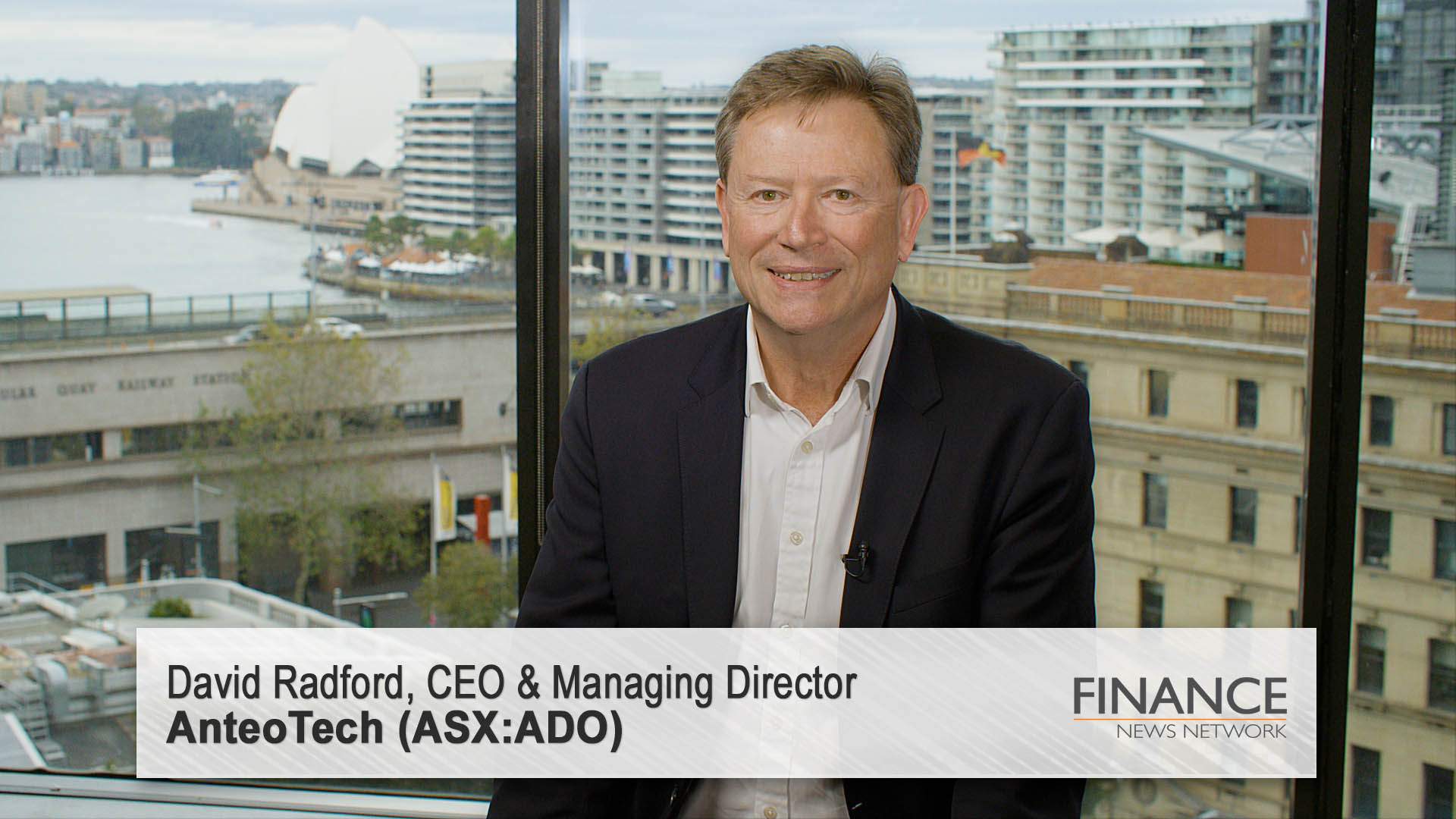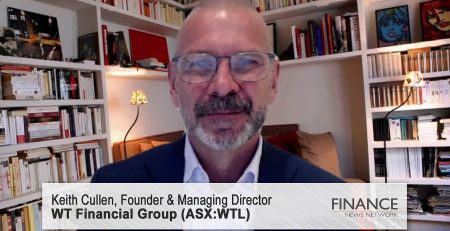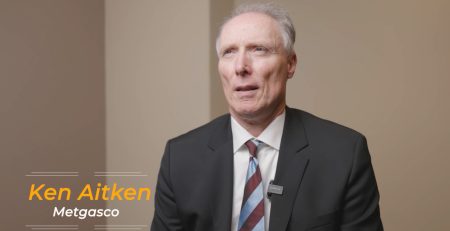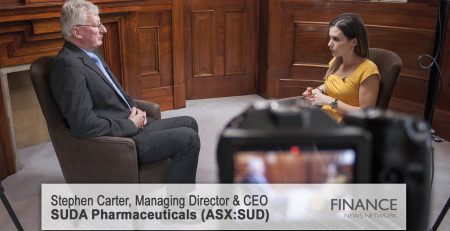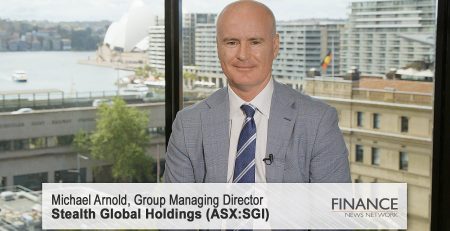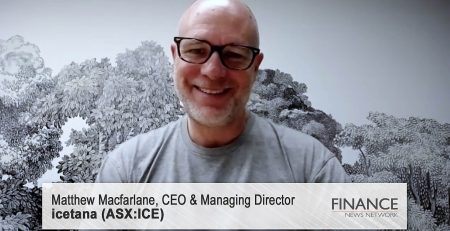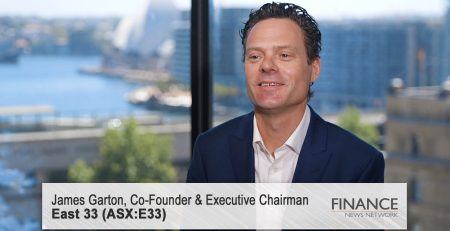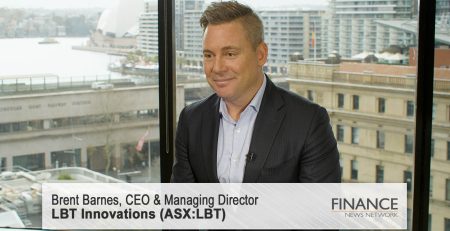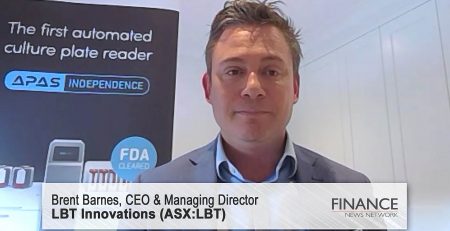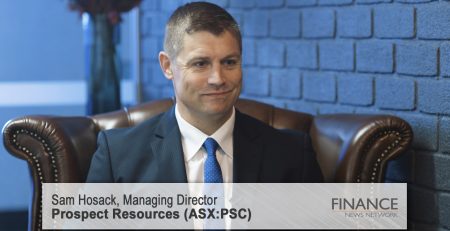Enhancing lithium-ion battery storage
Industry standard graphite anodes have reached their technical limitations. AnteoTech Limited (ASX:ADO) CEO and Managing Director David Radford discusses the company's solution for significantly increasing battery capacity by enhancing silicon integration.
Tim McGowen: We're talking today with AnteoTech (ASX:ADO). It's got a market cap of around $94m. We're joined by David Radford, who's the company CEO and Managing Director. The company's patented metal-ion-based technology is applied to improve the performance of next-generation lithium-ion batteries and in the development of diagnostic solutions in life sciences.
David, thanks for your time.
David Radford: Thanks, Tim.
Tim McGowen: Now, in regards to the business, AnteoTech, can you tell us a little bit more about the business?
David Radford: So, AnteoTech is a company that is in the specialised performance-enhancing binders. So, it started off initially in the life sciences sector, where it was used in point of care technology, binding antibodies to the cellulose acetate sheets. So, what it does there is improve the specificity and sensitivity of the test. Some of our brilliant scientists, about five years ago, looked at the opportunity and said, "Well, we have a technology that can be applied to the lithium-ion battery space." And five years ago they set up a team to investigate how we can apply our performance-enhancing binder to the lithium-ion battery space. And as a result of that, we're in the leading pack of developers in the high-silicon anode sector of the market.
So, we have two leading products. One is AnteoX, which is a performance-enhancing binder that is used with existing binders, but the difference being it can be used to increase the percentage of silicon in the anode. Currently, the anodes sit at about 90 per cent graphite, 10 per cent silicon. The ultimate goal is to move to a high-silicon anode, which improves performance in terms of increased range, if you have an electric vehicle, decreases charging time, decreases the cost of the battery. And, with our technology, we're actually able to contribute to the decarbonisation of the battery manufacturing. So, we're in a very exciting sector that is growing very quickly with some leading products.
Our other product in that sector, which makes us highly unique, is we have a high-silicon anode that we are working on which will solve a lot of problems with the move to high silicon. So, very exciting space and some world-leading technologies.
Tim McGowen: And you've joined the company just six months ago. You must have an incredible team in place given the sort of technology you're covering.
David Radford: I was very lucky. I was brought on by the board and started in October. My remit was to change the company from an R&D-focused business to a marketing-led sales-driven business. And, if you look at my leadership team, I've got what I believe to be a world-class leadership team. We've got people from Boeing, we've got GE, we've got Abbott Laboratories. We've got a couple of people that have commercialised technologies. And everyone is a specialist in their own area, and very senior, very capable team.
We've now structured the business into clearly delineated sectors whereby we have clear KPIs, and everyone now knows what they're doing and is marching to the beat of the KPIs and the deliverables expected of them. So, we've really structured the business for growth and the team has responded very positively.
Part of that structuring and bringing this team in is we've been able to right-size the organization. We are now totally focused in driving the commercial opportunities. We've got a great research team. We have, approximately, I think it's about 15 PhDs on staff now, seven masters, so we are a very highly skilled organization. We represent 12 nationalities, so wonderfully diverse, culturally and gender-wise. So, tremendous team across the board.
Tim McGowen: So, you touched on, David, putting more silicon into the batteries. Why is that a game changer, and is anyone else doing this globally?
David Radford: That's a great question, Tim. And silicon is viewed as being the ultimate, if you like, holy grail of anode technology for the lithium-ion batteries. The reason for that is that it can store a greater charge density per weight. So, if you assume that lithium can store a charge of, let's say, 4, we can get 40 comparatively. And what we've been able to demonstrate in our laboratories is a 35 per cent increase in range or duration of our batteries. So, if you have an EV, we can increase the range by up to 35 per cent by moving to silicon. It's a cheaper material than graphite, per unit of energy stored.
We actually have a unique focus on the way we are building our high-silicon anode. There are companies in the US that are producing high silicon for about $100 per kilowatt hour. Our comparative cost is $1 per kilowatt hour, and we use a lower grade of metallurgical silicon that is cost-effective. And with our proprietary technologies, we've actually been able to get some outstanding results with up to 80 per cent silicon in the anode. So, when we have our head of clean energy technologies present overseas at major conferences, he gets a dozen or so leads from companies that say, "This is where we want to be. How can you help us get there?" So, we know from peer review at these conferences that we are part of that leading pack of development of the technology.
Tim McGowen: And what sort of milestones have to be achieved, say over the 12 months, or to the pathway to commercialization?
David Radford: So, as you will have seen, we announced a memorandum of understanding back in March with Trinseo, which is the ex Dow Chemicals. We are working with Trinseo to add our high performance binder, the AnteoX, to their existing Voltabond product, and enhance their product's performance as they look to service the battery industry.
Wyon is our other memorandum of understanding, and Wyon wouldn't be known to many people at all. It's a beautifully run family business that is purely specialised in medical batteries. And, to give an example close to home, they manufacture the batteries for the cochlear ear implants. So, we're working with them on enhancing their silicon anode performance to produce a lighter battery with increased duration of charge. And that's what we're working on with these two partners. So, over the next 12 months, we are on track for progression to commercial agreements with both parties.
We have multiple other international parties that we are working with, with a view to entering into commercial agreements. So, these could be a licence deal, they could be an offtake distribution agreement, or it could be a joint development agreement. So, we are open to working in a partnership format with multinationals from around the world. I think it's fair to say that we are now getting recognition from these potential partners and they are now beginning to approach us, which is an exciting time for the business.
Tim McGowen: David Radford, thanks for your time.
David Radford: Thank you.
Ends
Copyright 2023 – Finance News Network
Source: Finance News Network

